Our project is accompanied by a scientific advisory board.
Among the members are: Prof. Dr. Hans-Joachim Gehrke (Freiburg), Prof. Bettina Schwarz DHL (Potsdam/Berlin) and Dr. Katja Soennecken (Wuppertal/Jerusalem).
GPIA
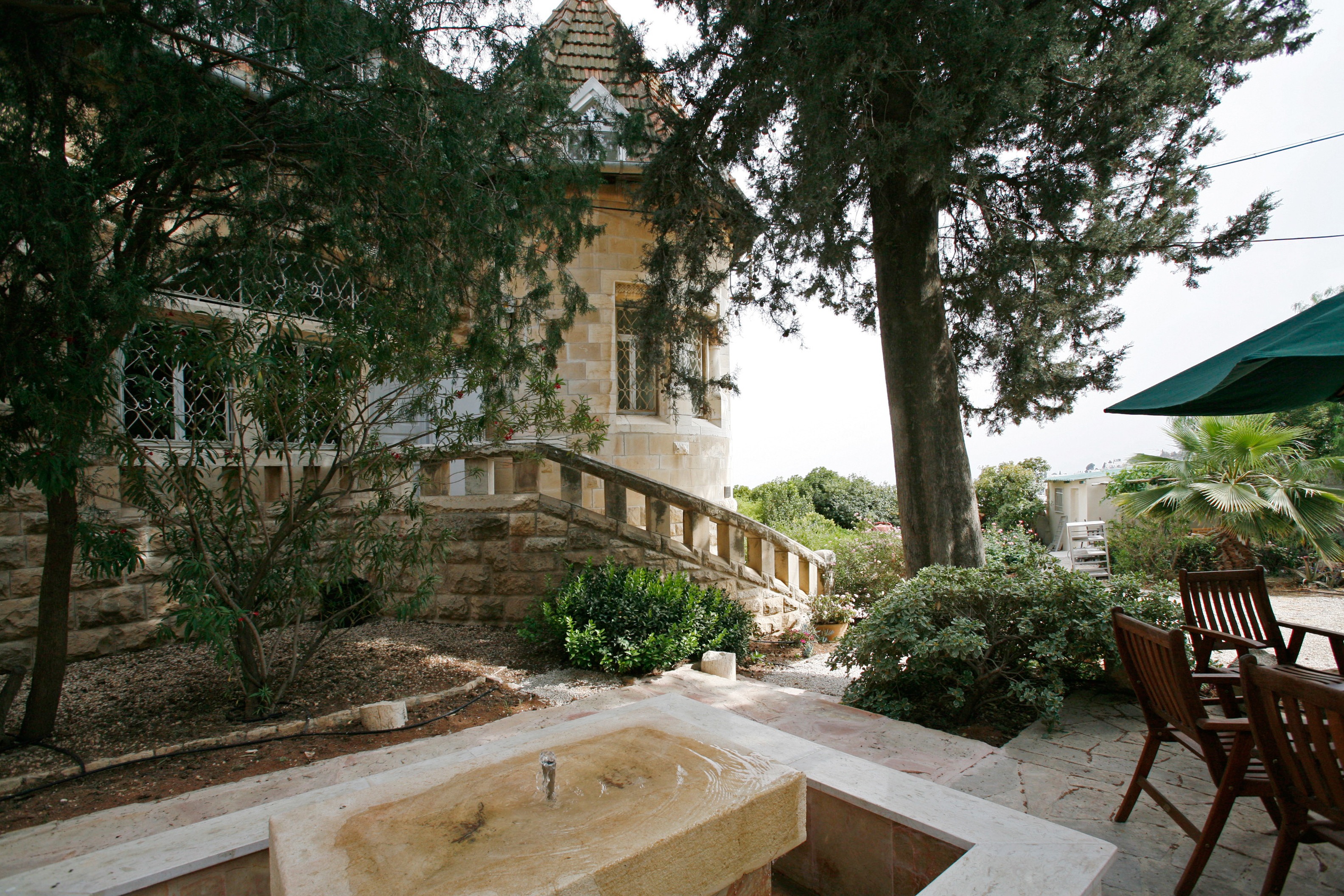
The German Protestant Institute of Archaeology was founded on 19th June 1900. The mission of the institute was clearly stated in its founding charter: the exploration of the Holy Land and its diverse past, cultures and religions. The knowledge acquired was meant to be available to, and discussed by, both experts and the general public. In light of this founding mission, the institute undertakes research on the history and culture in the Middle East.
The GPIAs various and multifaceted archaeological projects, including restoration and presentation for the public, would not be possible without the generous support by our partners:
Wissenschafts-
Förderungs gGmbH
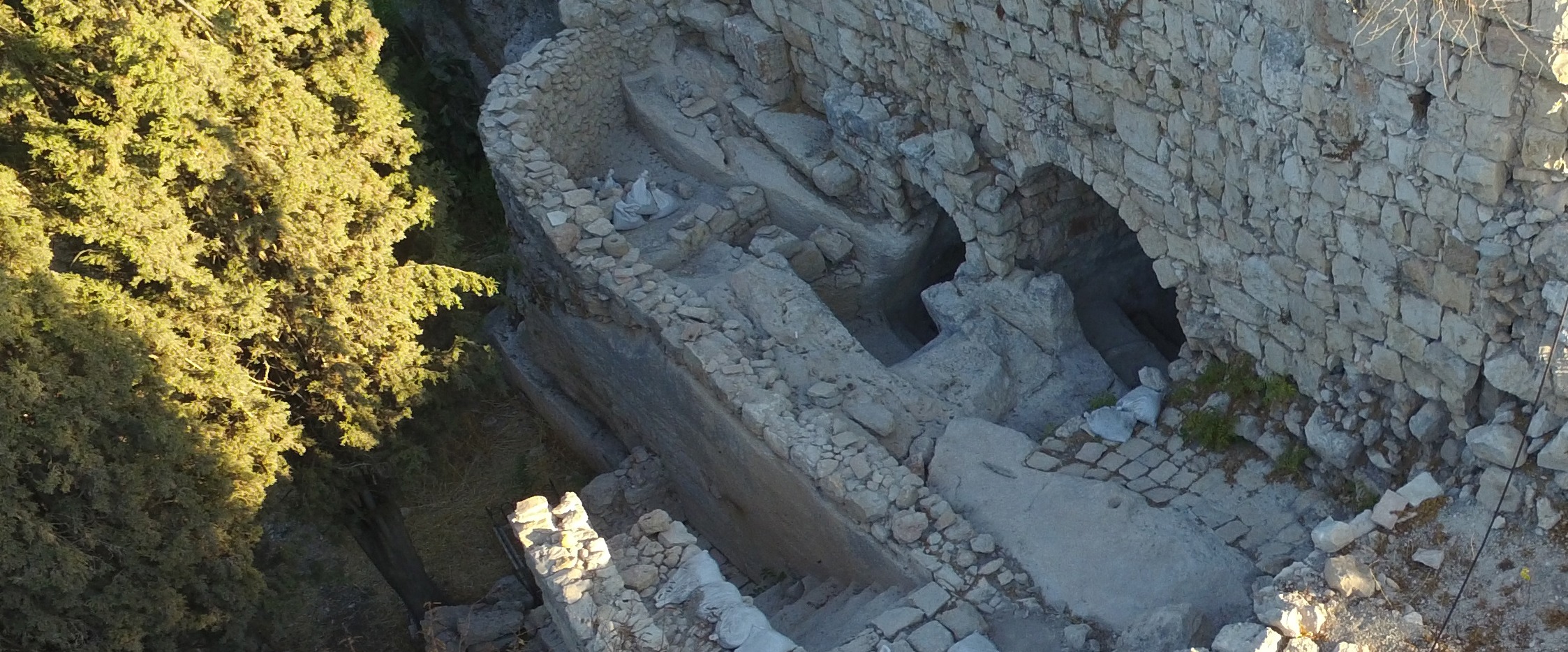
We are indebted to Frau Prof. Bettina Schwarz DHL for the support of the Wissenschaftsförderungs gGmbH located in Düsseldorf!
Only with the support of the Wissenschaftsförderungs gGmbH the Mt. Zion Project with its numerous challenges could be realised. Research on Mt. Zion and the work to remodel the Protestant Cemetery into an archaeological park will last until 2024. Until then, the Miqvaot are planned to be restored, and the adjacent Greek Garden will be archaeologically investigated.
Gerda Henkel Stiftung
Gerda Henkel Foundation
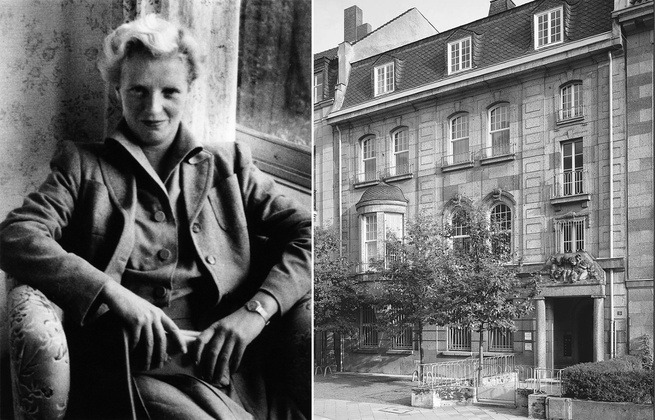
The Gerda Henkel Foundation is a not-for-profit foundation under German private law. The object of the Foundation is to promote science, primarily by supporting specific projects in the field of the humanities that have a specific specialist scope and are limited in time and the related publications, in particular
- by supporting research projects by scholars inside and outside Germany on carefully defined themes in the humanities,
- by awarding scholarships (in particular for research and Ph.D. projects) to scholars inside and outside Germany,
- by undertaking and supporting measures on a scientific basis in the field of monument preservation as well as by undertaking and supporting all measures that are suited to further the object of the Foundation,
https://www.gerda-henkel-stiftung.de/grundsaetze_foerderbereiche
Fritz Thyssen Stiftung
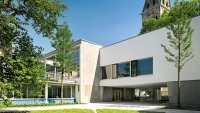
The foundation’s headquarter
„The Fritz Thyssen Foundation, headquartered in Cologne, was established on 7th July 1959 by Amelie Thyssen and her daughter, Anita Countess Zichy-Thyssen, in memory of August and Fritz Thyssen for the purpose of promoting the science and research. It was the first large private individual foundation promoting science and research to be founded in the Federal Republic of Germany after the Second World War.“
“It has always been our intention to place a nominal amount of DM 100 million in stock of Aug. Thyssen-Hütte AG in a “Fritz Thyssen Foundation”, which is to be independently administrated and whose earnings are to be used to the benefit of German universities and other schools of higher learning, research, science and for the support of junior researchers.”
Amélie Thyssen in a letter to Konrad Adenauer dated 5 May 1960 on the purpose of the Foundation (quotations and picture from the web page below)
http://www.fritz-thyssen-stiftung.de/ueber-uns/allgemeines/stiftungszweck-und-satzung/
Alfried Krupp von Bohlen und Halbach- Stiftung
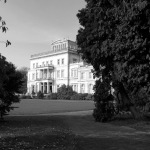
Villa Hügel – The foundation’s headquarter
Wir danken ebenso der Alfried Krupp von Bohlen und Halbach-Stiftung:
“Die gemeinnützige Alfried Krupp von Bohlen und Halbach-Stiftung ist das Vermächtnis von Dr.-Ing. E. h. Alfried Krupp von Bohlen und Halbach, dem letzten persönlichen Inhaber der Firma Fried. Krupp. Testamentarisch legte er fest, „die Firma über eine Stiftung, die Ausdruck der dem Gemeinwohl verpflichteten Tradition des Hauses Krupp sein soll, in eine Kapitalgesellschaft umzuwandeln“. Mit seinem Tod am 30. Juli 1967 ging sein gesamtes Vermögen auf die von ihm errichtete Stiftung über, die ihre Tätigkeit am 1. Januar 1968 aufnahm. Die Alfried Krupp von Bohlen und Halbach-Stiftung verwendet die ihr aus ihrer Unternehmensbeteiligung zufließenden Erträge ausschließlich und unmittelbar für gemeinnützige Zwecke. Die Stiftung ist politisch und konfessionell unabhängig.”
“Im Bereich der Förderung von Wissenschaft und Lehre konzentriert sich die Alfried Krupp von Bohlen und Halbach-Stiftung auf ihre eigenen Stipendien- und Förderprogramme sowie auf ausgewählte Modellvorhaben von Hochschulen und wissenschaftlichen Einrichtungen. Der Fokus liegt auf der Förderung des wissenschaftlichen Nachwuchses. Während der Alfried Krupp-Förderpreis für junge Hochschullehrer besonders begabte junge Wissenschaftler in ihren Forschungsvorhaben unterstützen möchte, sind die Stipendienprogramme für den akademischen Nachwuchs konzipiert: Studierende sollen die Möglichkeit erhalten, sich mit anderen Disziplinen und Kulturen auszutauschen und ihr wissenschaftliches und persönliches Profil stärken.” (Texte und Bild der Villa Hügel von der o.g. Homepage)
Federal Foreign Office
Cultural Preservation

We are grateful for the support by the Federal Foreign Office
The Federal Foreign Office supports the preservation of cultural heritage in developing countries and protects German cultural heritage abroad.
https://www.auswaertiges-amt.de/de/aussenpolitik/themen/kulturdialog/09-kulturerhalt/kulturerhalt-node
Since 1981, Germany has been supporting the preservation of cultural heritage across the globe as part of the Cultural Preservation Programme of the Federal Foreign Office.
Support is given to projects to preserve cultural heritage abroad and to protect German cultural heritage abroad, except in areas where Germans historically settled in Eastern Europe (for which the Federal Government Commissioner for Culture and the Media is responsible).
The aim is to strengthen people’s sense of their own national identity and to foster a cultural dialogue in a spirit of partnership. The programme has become a highly effective instrument of Germany’s cultural relations and education policy.
